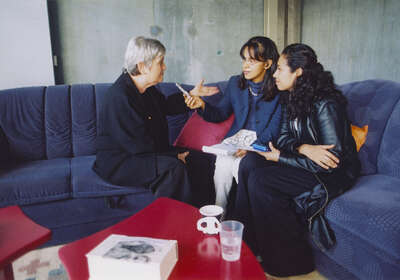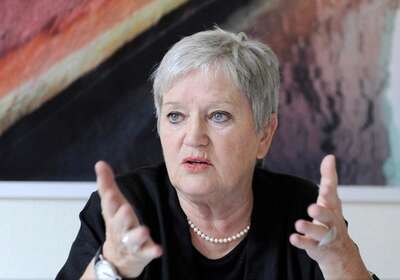History:
Our history begins with a courageous and visionary idea: to nominate 1000 women for the Nobel Peace Prize in order to give more visibility and recognition to women's peace work worldwide. From the "1000 Women for the 2005 Nobel Peace Prize" initiative emerged a global network of women peace activists - and our organisation.
Look, observe the tireless peace work of women in conflict countries and also in so-called peaceful countries. Learn from them. Give them, their experiences and their demands a significant place in peace negotiations and governments!
This is how our Co-President Ruth-Gaby Vermot-Mangold describes the motivation that led to the initiative, launched in 2003, to nominate 1000 women for the 2005 Nobel Peace Prize. The idea arose from her experiences and encounters as a Swiss National Councillor and member of the Council of Europe during visits to refugee camps and conflict-affected countries. The hope was for the 1000 women to be awarded the Nobel Peace Prize in 2005, to represent the hundreds of thousands of unknown women who work tirelessly for peace in their countries.
Success for the visibility of peace work
After a year of intensive work, the small team in Bern, with the help of coordinators in different regions of the world, drew up a list according to strict criteria, from which the 1000 PeaceWomen were selected to be nominated in 2005.
The disappointment was great when they did not receive the Nobel Peace Prize. But the goal of the campaigning, networking, public relations and media work had been achieved: never before had women's peace work been so visible. The ambitious initiative was also recognised: in 2006, it received the Peace and Reconciliation Prize of the Spanish city of Guernika, the Ida Somazzi Prize for outstanding achievements in women's peacebuilding, as well as recognition from the Council of Europe.
Conflict transformation and the network still central
In 2008, the successor organisation, PeaceWomen Across the Globe, set thematic priorities for the first time with the "Redefining Peace - Women Lead the Way" programme. Women’s participation in peace processes, conflict transformation and peacebuilding as well as the networking of women activists and their engagement for gender justice continue to be part of our core activities.
-
Launch of the "1000 Women for the Nobel Peace Prize" initiative.
-
Publication of the book "1000 PeaceWomen Across the Globe" in multiple languages.
-
The exhibition "1000 Faces of Peace" is shown for the first time in Zurich in autumn, in New York in December, and subsequently over a thousand times worldwide.
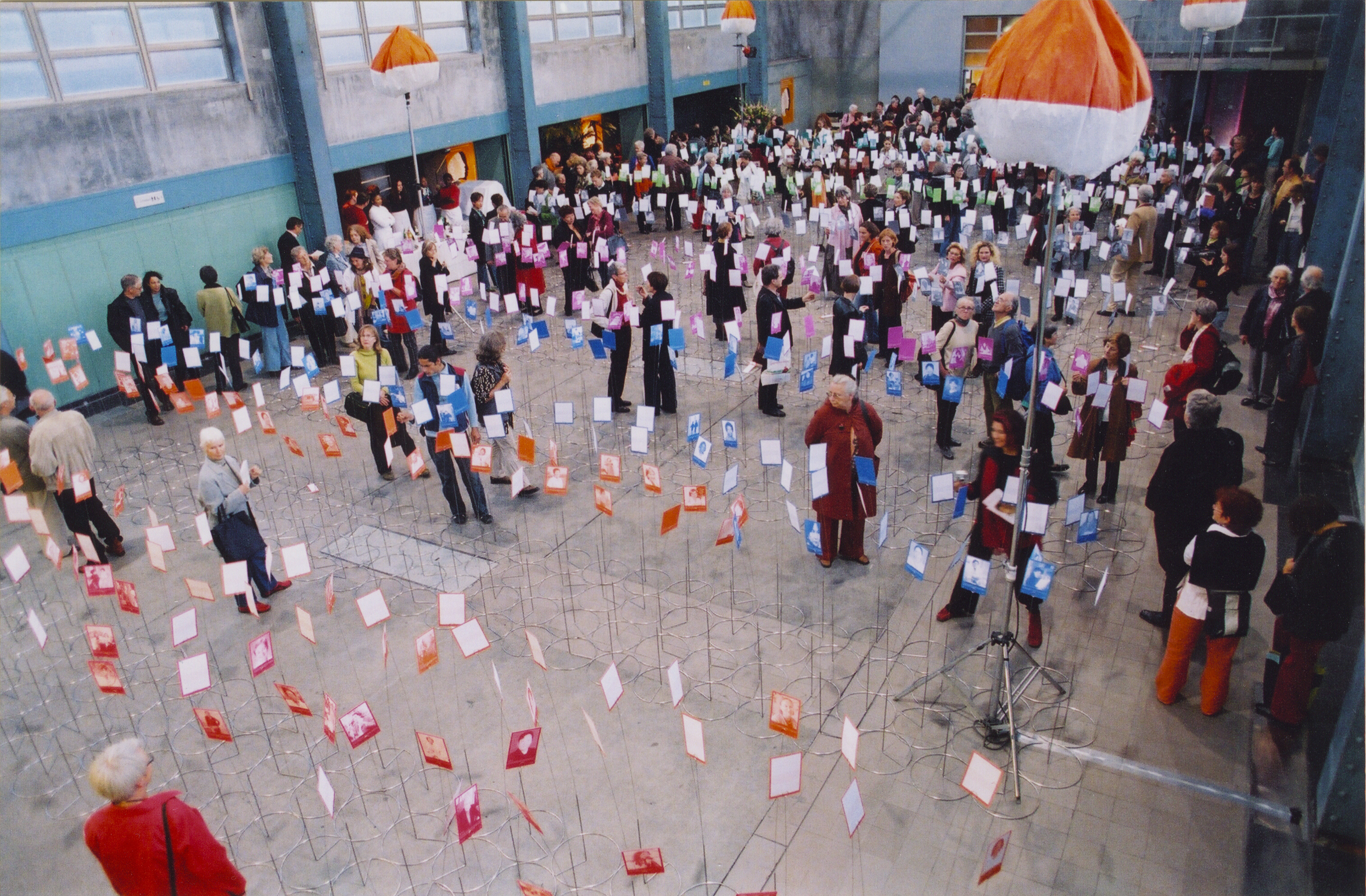
-
The names of the nominated PeaceWomen are announced at over 40 press conferences worldwide.
-
Announcement of Nobel Peace Prize winner Mohammed el-Baradei, Director of the Atomic Energy Agency, on 7 October.
-
Founding of the successor organisation, the non-profit association PeaceWomen Across the Globe.
-
Until 2009 Establishment of the "Redefining Peace - Women Lead the Way" programme within the PeaceWomen network.
-
Exhibition "No Women - No Peace" on the 10th anniversary of UN Security Council Resolution 1325 on "Women, Peace and Security" in the entrance hall of the Security Council in New York and at the UN headquarters in Geneva.
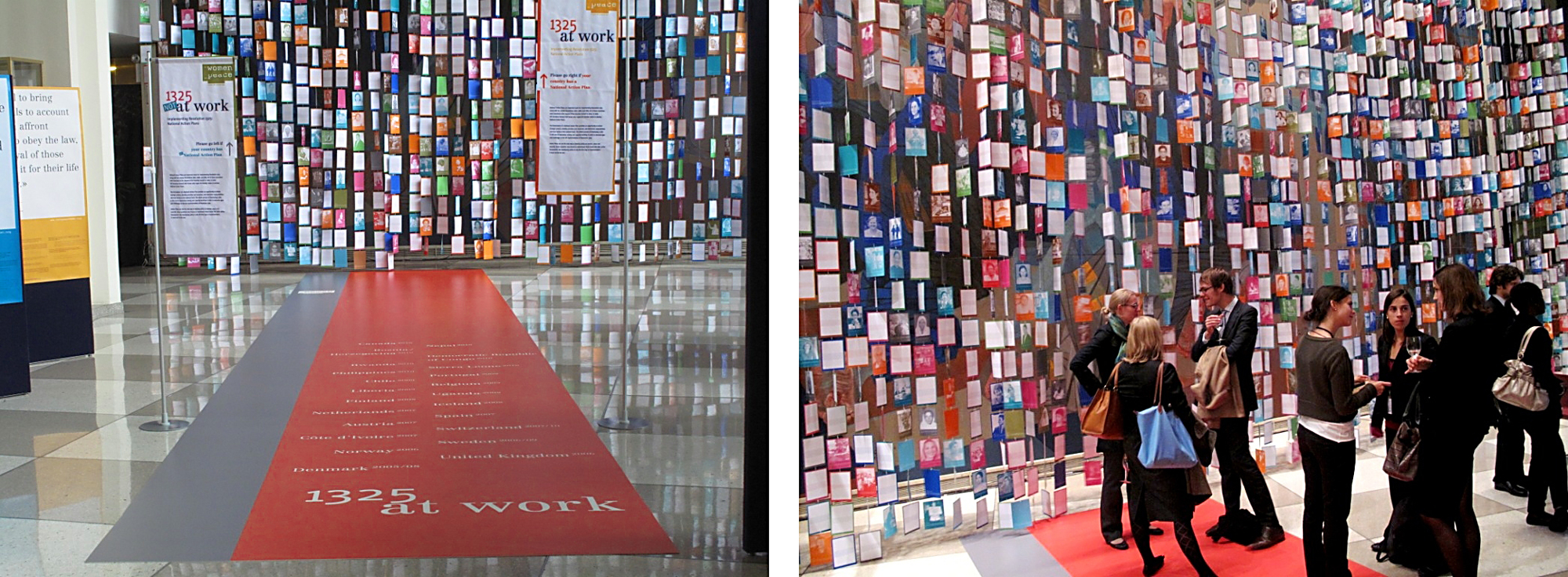
-
Until 2014: Dialogue forums are held all over Egypt to promote and support the participation of women in the democratisation process.
-
Exhibition "No Women - No Peace" shown in Germany, Austria and Switzerland, at universities and schools, in parish halls and in public, e.g. on public squares in the city of Bern.
-
Until 2015: The coordinators in Argentina, Brazil and Indonesia cooperate on supra-regional projects to curb violence against women.
-
Exhibition "Safe water. With women!" is shown at the 6th World Water Forum in Marseilles.
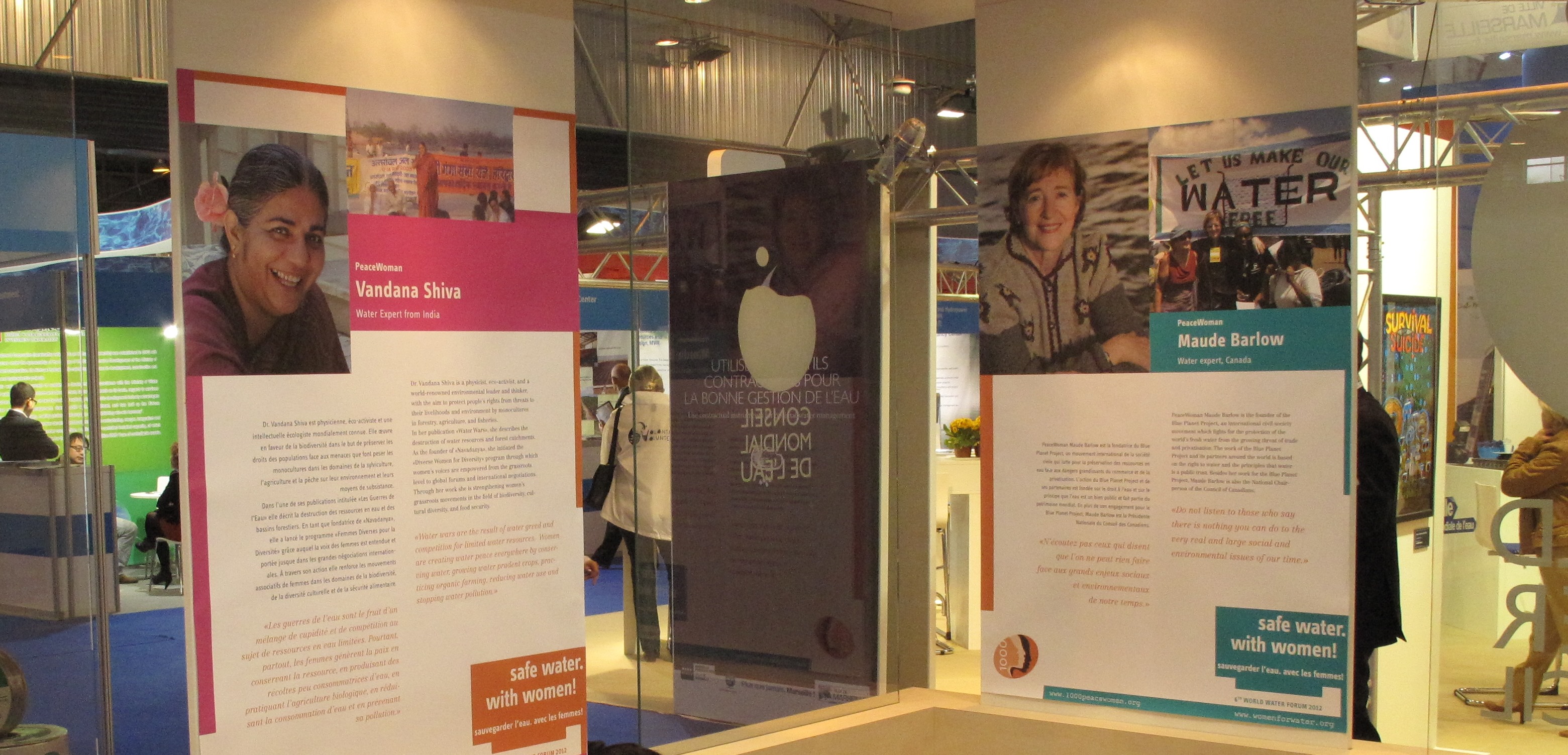
-
PeaceWomen Across the Globe celebrates its tenth anniversary and organises Women's PeaceTables in ten different world regions.
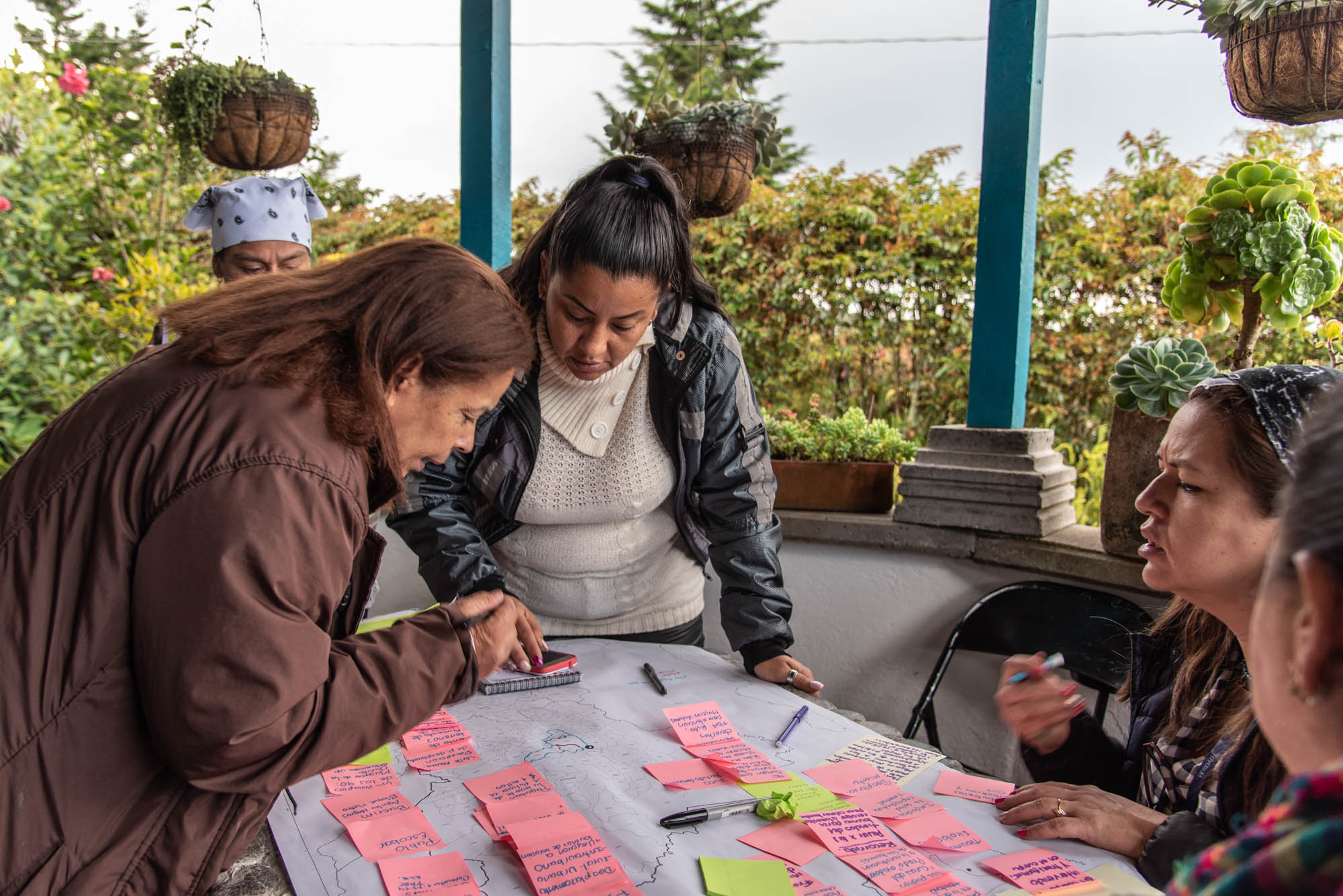
Women's Peace Table in Colombia
-
Until today:
PeaceWomen Across the Globe supports and accompanies women in countries and regions affected by armed conflict in their diverse efforts to achieve lasting peace. Together with our partners and members of our network Feminists Connecting for Peace, we are committed to a comprehensive understanding of peace and to the equal and full participation of women in all phases of peace processes.
Film: 1000 women and a dream
The film is available in English and German. Length: 55 minutes
